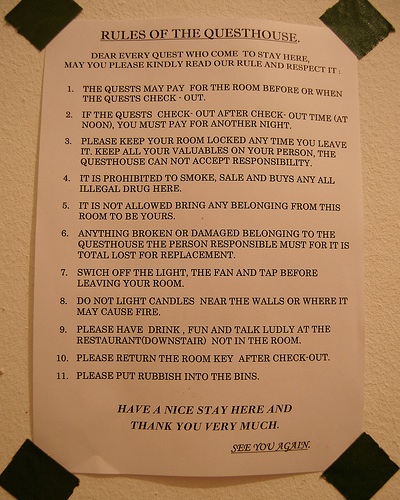Terms and Conditions
Massachusetts Courts Mull Right of Access to Deceased Family Members' E-mail
Copyright of “Public Facts”: Craigslist v. PadMapper
Social Media Policies: Fed Labor Law Problem?
Back in Court, GateHouse Gives Not Great News Based on Creative Commons License
Sedersten v. The Springfield News-Leader
NEEEEEDDDD BRAAAAINNS: MPAA Resurrects Plan to Take the R Out of DVRs
Copyright 2007-25 Digital Media Law Project and respective authors. Except where otherwise noted,
content on this site is licensed under a Creative Commons Attribution-Noncommercial-ShareAlike 3.0 License: Details.
Use of this site is pursuant to our Terms of Use and Privacy Notice.
content on this site is licensed under a Creative Commons Attribution-Noncommercial-ShareAlike 3.0 License: Details.
Use of this site is pursuant to our Terms of Use and Privacy Notice.


 A case in the Massachusetts Court of Appeals,
A case in the Massachusetts Court of Appeals, 
 GateHouse Media, Inc., a publisher of local newspapers
GateHouse Media, Inc., a publisher of local newspapers  On this blog, I typically write about frivolous or ill-considered lawsuits. In
On this blog, I typically write about frivolous or ill-considered lawsuits. In  We
We  Paul Klocko got a surprise in the mail in April: a letter on official stationary from Weston, Wisconsin administrator Dean Zuleger, demanding that Klocko stop posting comments on the web criticizing him. The letter also asked that Klocko "come out from behind the cloak" and meet Zuleger in person.
Paul Klocko got a surprise in the mail in April: a letter on official stationary from Weston, Wisconsin administrator Dean Zuleger, demanding that Klocko stop posting comments on the web criticizing him. The letter also asked that Klocko "come out from behind the cloak" and meet Zuleger in person.

Description:
Craigslist is a classified advertisements website with one section of its site dedicated to housing. With a simple design that has not been significantly updated since its creation, craiglist allows users to post (among other things) apartment rental listings. In order to make the material on craigslist more user-friendly, PadMapper takes the information from craigslist's apartment listings and plots these on an easily searchable map, adding search filters. 3taps is a startup committed to collecting and distributing public data, which partnered with PadMapper to assist with its access to the apartment information on craigslist.
In response to their use of craigslist's listings, craigslist sent PadMapper a cease and desist letter. After PadMapper refused to comply, craigslist filed a complaint in the U.S. District Court for the Northern District of California on July 20, 2012, against PadMapper and 3Taps. In its complaint, craigslist asserted ten claims for relief, including contract (asserting breaches of craigslist's terms of use), copyright, and trademark/unfair competition claims.
3taps answered the complaint on September 24 and filed a counterclaim, asserting claims of antitrust violations, unfair competition, and interference with economic advantage. Overall, 3taps' defense and counterclaims focused on the premise that the facts drawn from craigslist's website are not craigslist's property, but in public domain, and that craigslist has maintained an unlawful monopoly through sham lawsuits, copyright misuse, improperly restrictive terms of use, and "ghosting." In its answer on October 30, PadMapper raised similar counterclaims alleging anticompetitive conduct by craigslist.
Craigslist filed a first amended complaint on November 20, 2012. In this amended complaint, craigslist added seven additional claims, for a total of 17. The claims were as follows (with new claims in italics)
In response, PadMapper and 3taps amended their counterclaims on December 21. PadMapper updated its counterclaims to include (attempted) illegal maintenance of a monopoly in violation of the Sherman Act and California unfair business practices, and to seek declaratory relief for noninfringement of craigslist's copyrights. 3taps alleged similar counterclaims, including multiple monopoly and contract claims under the Sherman Act, California unfair competition, and interference with economic advantage.
PadMapper and 3taps also filed motions to dismiss on December 21, 2012. PadMapper, which first filed a motion to dismiss on October 30, 2012, amended this motion to dismiss craigslist's claims for trespass (claim 1), breach of contract (2), federal trademark infringement (6), federal false designation of origin (7), California trademark infringement (10), and common law trademark infringement (11). PadMapper argued that the Copyright Act preempts the breach of contract claim and that craigslist failed to state a trespass claim against PadMapper. PadMapper also argued that the four trademark claims are precluded under the U.S. Supreme Court's decision in Dastar v. Twentieth Century Fox Film, which narrowed the scope of the Lanham Act so not to cover claims where the core issue is a copyright claim, primarily the improper reproduction of copyrighted material.
3taps moved to dismiss craigslist's claims of copyright infringement (claim 4), contributory copyright infringement (5), violations of the Computer Fraud and Abuse Act (13), and California Comprehensive Computer Data Access and Fraud Act (14). With respect to the copyright claims, 3taps argued that craigslist has no standing to assert copyright infringement of user-generated content and its asserted copyright registrations are invalid. 3taps also argued that the statutory elements of the CFAA and California statute could not be satisfied, as establishing unauthorized access requires proof of hacking which craigslist judicially admitted did not occur.
In an opposition filed on January 31, 2013, craigslist reasserted the sufficiency of its pleadings and the validity of its copyrights. PadMapper and 3taps replied in support of their respective motions to dismiss on February 13.
On February 8, 2013, noting the complexity of the lawsuit, craigslist filed a motion to bifurcate and stay Defendants' amended counterclaims pending resolution of craigslist's claims. Craigslist argued that the counterclaims would be made moot or significantly narrowed if craigslist prevailed on its claims, and consideration of the antitrust counterclaims in conjunction with craigslist's claims would increase the legal and factual complexity of the case, delaying the proceedings. PadMapper and 3taps both opposed this motion on March 1. The defendants argued that the claims at issue are intertwined and would not be rendered moot if craigslist prevails, such that bifurcation would be inappropriate. The defendants further argued that a decision on bifurcation would be premature, and a stay of discovery would result in prejudice. In a reply on March 15, craigslist maintained that resolving craigslist's claims would at least streamline the antitrust claims, while the balance of potential prejudice weighs heavily towards bifurcation. Craigslist also argued that the motion was not premature and the bifurcation should occur before the start of discovery.
On April 29, 2013, Judge Charles Breyer issued an order granting in part and denying in part the defendants' motions to dismiss, and granting craigslist's motion to bifurcate. The district court denied 3taps' motion to dismiss the Computer Fraud and Abuse Act and California Comprehensive Computer Data Access and Fraud Act claims, noting that the defendant's continued access after clear statements regarding authorization in the cease and desist letters and terms of use sufficiently constitutes unauthorized access under these statutory provisions. The Court also denied PadMapper's motion to dismiss the trespass claim and the breach of contract claim, which it it ruled was not preempted by the Copyright Act. PadMapper's motion to dismiss the trademark claims was also denied, as the Court held that they were not precluded by Dastar. With respect to the copyright claims, the Court held that craigslist sufficiently established the originality of the compilation of the posts to warrant copyright protection, even in the individual posts themselves, and sufficiently registered copyright for this content.
However, the Court ruled that craigslist was the exclusive licensee of this content only from July 16, 2012 through August 8, 2012, during which period users were presented with a notice to click confirming craigslist's position as the exclusive licensee of the post. Outside of those weeks when the exclusive license confirmation statement was in use, the court found that craigslist could not sue for copyright infringement. Accordingly, the Court granted the motions to dismiss the copyright claims with respect to user-created posts submitted before July 16 or after August 8, 2012. Lastly, the Court concluded that "the likelihood of streamlining discovery for and adjudication of the antitrust counterclaims based on the outcome of Craigslist's claims-even if those counterclaims must ultimately proceed-warrants bifurcation," and therefore granted craigslist's motion to bifurcate and stay discovery on the antitrust counterclaims.